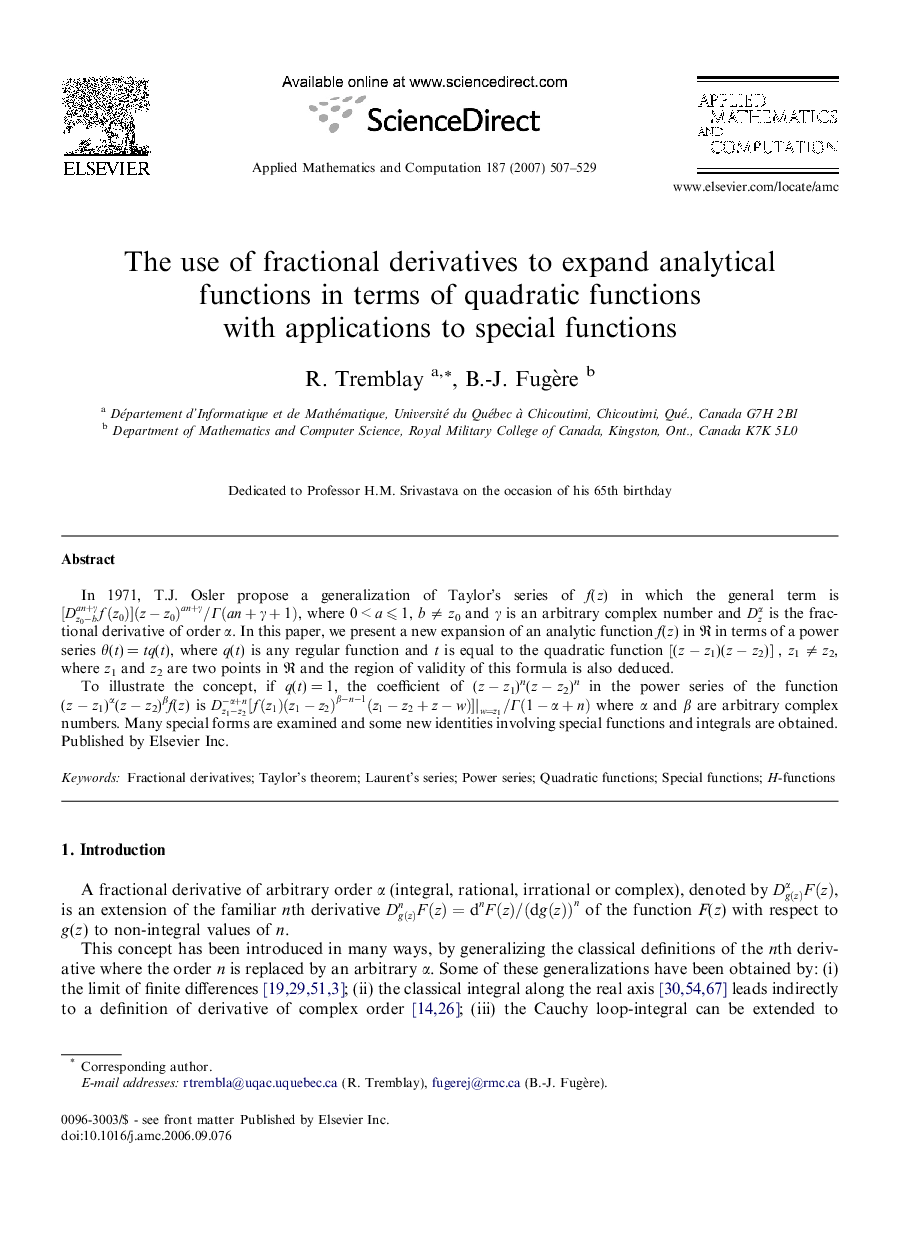| Article ID | Journal | Published Year | Pages | File Type |
|---|---|---|---|---|
| 4635858 | Applied Mathematics and Computation | 2007 | 23 Pages |
In 1971, T.J. Osler propose a generalization of Taylor’s series of f(z ) in which the general term is [Dz0-ban+γf(z0)](z-z0)an+γ/Γ(an+γ+1), where 0 < a ⩽ 1, b ≠ z0 and γ is an arbitrary complex number and Dzα is the fractional derivative of order α. In this paper, we present a new expansion of an analytic function f(z ) in RR in terms of a power series θ(t) = tq(t), where q(t) is any regular function and t is equal to the quadratic function [(z − z1)(z − z2)] , z1 ≠ z2, where z1 and z2 are two points in RR and the region of validity of this formula is also deduced.To illustrate the concept, if q(t) = 1, the coefficient of (z − z1)n(z − z2)n in the power series of the function (z − z1)α(z − z2)βf(z ) is Dz1-z2-α+n[f(z1)(z1-z2)β-n-1(z1-z2+z-w)]|w=z1/Γ(1-α+n) where α and β are arbitrary complex numbers. Many special forms are examined and some new identities involving special functions and integrals are obtained.
